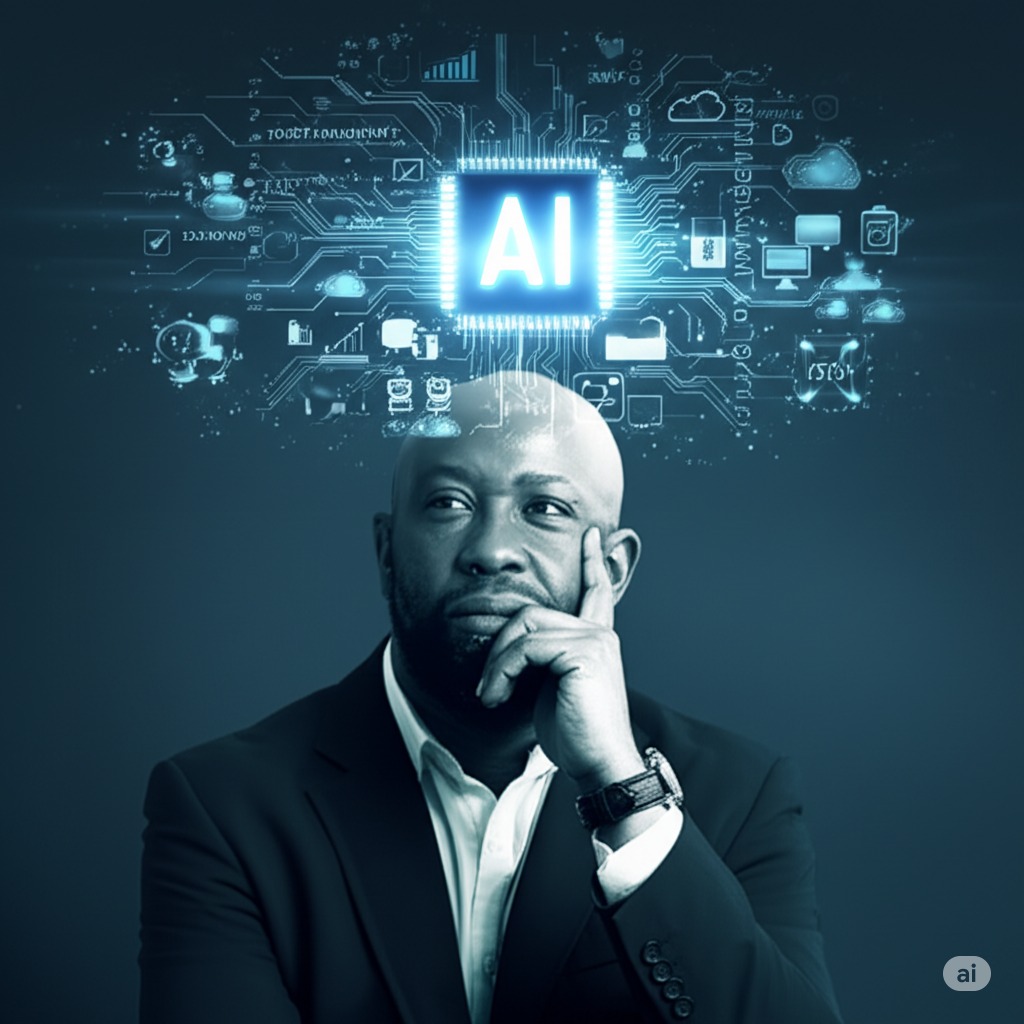The Future of SaaS is Intelligent: Are You Ready for the AI Revolution?

Lately, I’ve been geeking out about something seriously transformative in the digital sphere â the fusion of Artificial Intelligence (AI) with Software as a Service (SaaS) and how it is simplifying how we use it, simplifies the way we work and literally enjoy doing work while using these platforms. We’re not just talking about a few fancy features here and there; this is a fundamental shift in how software is created, delivered, and, most importantly, how it helps you.
If you’re a business owner, a tech enthusiast, or just someone trying to keep up with the rapid pace of innovation, you’ve probably heard the buzz around AI. But how is this actually changing the SaaS landscape we’ve all come to rely on? Buckle up, because the future of SaaS is looking seriously intelligent.
How is AI Changing the SaaS Industry? ð¤
Artificial intelligence is fundamentally reshaping the SaaS industry by moving it from a tool-provider model to an intelligent partner model. Think about it: for years, SaaS has been about accessing software over the internet, cutting down on infrastructure costs and offering flexibility. Now, AI is injecting a layer of smartness into these platforms, leading to some pretty exciting developments:
- Hyper-Personalization on Steroids: Remember those generic email blasts? Kiss them goodbye. AI can now analyze tons of data about your customers to tailor experiences down to the individual level. This means personalized recommendations, customized workflows, and content that actually resonates.
- Predicting the Future (Almost!): Forget just looking at past data. AI-powered SaaS can now forecast trends, predict customer behavior (like whoâs about to churn), and give you actionable insights to stay ahead of the curve.
- Automation That Actually Thinks: We’ve had automation in SaaS for a while, but AI is taking it to a whole new level. Complex tasks that used to require human intervention are now being handled intelligently, freeing up your team for more strategic work.
The Future of Software as a Service: More Than Just Software ð®
- The traditional SaaS model is evolving. We’re moving towards a future where software isn’t just a passive tool; it’s an active, intelligent assistant. Some are even calling it the rise of “Services as Software.” This means the value you get from a SaaS platform will be less about the features it has and more about the intelligent outcomes it delivers.
- Consider how SaaS companies are starting to integrate AI into their offerings:
- Content Creation Made Easy: Tools are emerging that use generative AI to help you create marketing copy, social media posts, and even basic design elements in minutes.
- Smarter Customer Support: AI-powered chatbots are becoming incredibly sophisticated, able to handle complex queries and provide instant support, improving customer satisfaction and freeing up human agents for more intricate issues.
- Fort Knox Level Security: Security SaaS platforms are leveraging AI to detect and prevent threats in real-time, learning from patterns to stay one step ahead of cybercriminals.
Concrete Examples: Seeing AI in SaaS Action ð¡
You don’t have to squint too hard to see this future unfolding. Here are a few examples of SaaS companies already making big moves with AI:
- Google Ads: Google has transformed its advertising platform into an AI-driven powerhouse. Features like Performance Max (PMax) campaigns use machine learning to automate bidding, targeting, and creative delivery across all of Google’s channels to find the most conversions. Smart Bidding itself analyzes millions of signals in real-time to set the perfect bid for each auction. Marketers now focus on providing the right strategic inputs (like assets and conversion goals) and let the AI manage the complex, real-time execution.
- Microsoft Outlook: This isn’t just an email client anymore. AI is deeply woven into the Outlook experience to boost productivity. The “Focused Inbox” uses AI to learn which emails are important to you and separates them from the noise. Features like Text Predictions suggest words and phrases as you type, saving time. With the integration of Microsoft Copilot, you can now ask the AI to summarize long, messy email threads or even draft a professional reply based on a simple prompt.
- Canva & Leonardo.AI: This is a fantastic example of integration. Canva, the popular design platform, acquired and seamlessly integrated Leonardo.AI, a generative AI image tool. Now, Canva users can generate unique, high-quality images directly within the platform, opening up a world of creative possibilities without needing to switch tools.
- SEMrush: This leading SEO and online marketing platform has been steadily incorporating AI into various aspects of its suite. Their writing assistant uses AI to help you craft SEO-friendly content, their SEO content template provides AI-driven recommendations, and they’re constantly exploring new ways AI can enhance their data analysis and competitive intelligence features. This empowers marketers to work smarter and get better results.
- (Think about your favorite SaaS tools! Many CRM, marketing automation, and analytics platforms are quietly adding AI-powered features to improve everything from lead scoring to campaign optimization.)
What Does This Mean for SME Entrepreneurs on the African Continent? ð
Now, let’s bring this closer to home. For small and medium-sized enterprises (SMEs) across Africa, the rise of AI-powered SaaS presents a game-changing opportunity:
- Leveling the Playing Field: Traditionally, access to sophisticated tools and expertise was often limited by budget. AI-powered SaaS can provide SMEs with capabilities that were previously only accessible to larger corporations. Imagine a small marketing team in Nairobi using AI to create highly targeted campaigns that compete with multinational brands.
- Boosting Efficiency and Productivity: Time is money, especially for lean teams. AI can automate repetitive tasks, analyze data faster, and provide insights that lead to quicker, more informed decisions. This can free up entrepreneurs and their teams to focus on core business activities and innovation.
- Enhanced Customer Engagement: Personalized experiences are key to building strong customer relationships. AI can help African SMEs understand their customers better and deliver tailored services, leading to increased loyalty and growth.
- Overcoming Resource Constraints: Finding specialized talent can be a challenge. AI-powered SaaS can act as an intelligent extension of a small team, providing expertise and capabilities that might otherwise require hiring expensive specialists.
However, it’s also crucial to acknowledge the challenges:
- Connectivity and Infrastructure: Reliable internet access remains a hurdle in some regions. SaaS, especially AI-intensive applications, relies on strong connectivity.
- Digital Literacy and Adoption: Awareness and understanding of AI and SaaS need to be further promoted among SMEs. Training and support will be crucial.
- Data Privacy and Security: As AI relies on data, ensuring data privacy and security is paramount. African SMEs need access to secure and trustworthy platforms.
Despite these challenges, the potential benefits of AI-powered SaaS for African entrepreneurs are immense. By embracing these intelligent tools, SMEs can unlock new levels of efficiency, innovation, and competitiveness in the global market.
Navigating the Intelligent Future of SaaS
The integration of AI into SaaS is not just a trend; it’s the direction the industry is heading. To thrive in this evolving landscape, businesses need to:
- Embrace Continuous Learning: Stay updated on the latest AI advancements and how they are being applied in SaaS solutions relevant to your industry.
- Focus on Outcomes, Not Just Features: When evaluating SaaS tools, look beyond the list of features and consider the actual business outcomes the AI-powered capabilities can deliver.
- Invest in Upskilling: Equip your team with the skills needed to leverage AI-powered tools effectively.
- Prioritize Data Privacy and Security: Choose SaaS providers with robust security measures and clear data privacy policies.
Conclusion: The Intelligent SaaS Revolution is Here
The future of SaaS is undeniably intelligent. AI is not just enhancing existing software; it’s fundamentally reshaping how we interact with technology and how it helps us achieve our goals. For businesses of all sizes, especially for the vibrant and innovative SME sector across Africa, this revolution presents a unique opportunity to leapfrog traditional limitations and build a more efficient, personalized, and competitive future.
Are you ready to embrace the intelligent evolution of SaaS? I’d love to hear your thoughts and experiences in the comments below!
Author: Makume Toti – A Search Engine Marketer with in excess of 15 years of experience operating out of Johannesburg, South Africa. Currently fascinated by how AI is evolving how Search and bettering User Experiences.
